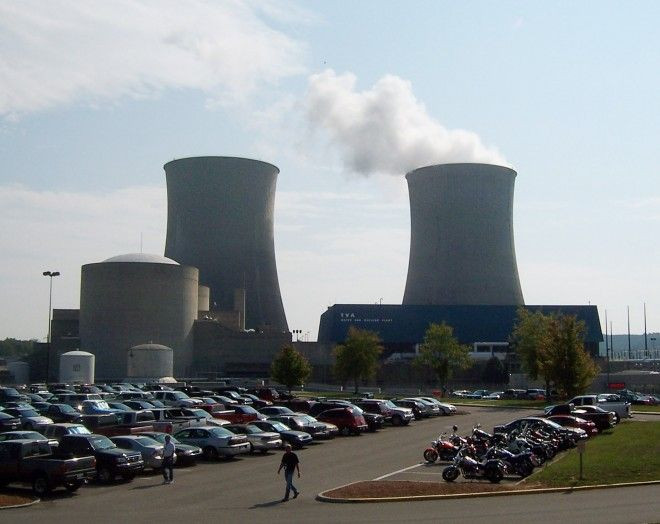Budget Hawks Oppose Nuclear Loan Guarantees

A combination of electricity demand and the need to reduce fossil fuel use should be fueling a renaissance of nuclear power. But that could be derailed by opposition from an unexpected quarter: fiscal conservatives.
Traditionally, the GOP has been a strong supporter of the nuclear power industry. Senators such as Lamar Alexander, Orrin Hatch, Mitch McConnell, Jeff Sessions and Richard Shelby have all stated they favor development of nuclear energy. It was a Republican-controlled Congress and White House that passed the 2005 Energy Policy Act, which put in place a loan guarantee program for nuclear plants. Alexander even went so far as to praise the Obama administration for pushing to increase the loan guarantees.
But now, some groups that see themselves as fiscal conservatives are saying that the loan guarantees would unfairly shift the risk of defaults to the taxpayers, and cost the government money that could better be spent elsewhere. Those with a more libertarian bent say the guarantees distort the cost of capital. If the private sector was willing to finance nuclear energy, they say, it would be done.
The National Taxpayers Union, Taxpayers for Common Sense, the Competitive Enterprise Institute and the Non-proliferation Policy Education Center all signed a letter to Congress on Dec. 8 that called for halting any increase in the amount allocated to the loan guarantees for nuclear plants.
Currently the government can guarantee up to $20.5 billion in loans ($2 billion is slated for backing uranium distribution and enrichment projects). Congress has before it a proposal to boost that by $7 billion. There are two projects in Georgia that have a total of $8 billion allocated to them. The loan guarantees cover up to 80 percent of the project cost and 100 percent of the total loan, though that can vary according to the project.
Ryan Alexander, president of Taxpayers for Common Sense, says the record of the Department of Energy in administering loan programs is not encouraging. She cites a 2003 Congressional Budget Office study says default rates can hit 50 percent or more, and that would mean that several projects totaling billions could leave the government footing the bill. It's just an unacceptable risk for the taxpayer to take, she said. Alexander says it would be better if the entire risk of default was not on the government.
The CBO Study doesn't actually say that default rates would be 50 percent, however; it says that the default rate was an assumption that would have to be re-evaluated when the projects were executed.
William Yeatman, policy analyst at the Competitive Enterprise Institute, says the costs of a nuclear power plant aren't really well-known, because nobody has built one in the U.S. for so long -- since 1979. Another problem is the removal of any risk from the investors. With no risk, there is less incentive to be prudent about costs, he says. As importantly, the method for calculating the loan subsidy costs - a percentage that the borrower has to pay to make up for the risk the government is taking -- is not transparent.
That said, Yeatman thinks the CBO estimate for default rates is probably too high, though calculating it is difficult as the 2003 study was conducted before the loan guarantees were in effect. The Department of Energy says that the subsidy costs are decided on a case-by-case basis.
Neither Yeatman nor Alexander say they have seen any GOP senators or representatives state their opposition to the loan program explicitly -- thus far the voices speaking out against it have been from think tanks such as the Heritage Foundation. But some incoming congressmen ran on a platform of fiscal restraint, and they will feel pressure from many of their supporters to limit government involvement in markets.
Steve Kerekes, a spokesman for the Nuclear Energy Institute, a Washington-based policy organization for the nuclear industry, said the fears of default are overblown, and that building power plants is a much different proposition than it was decades ago. We've standardized a lot, he said. Standardization was a technique learned from the French nuclear program, which used a single design for every plant. That reduces construction costs. In the past, each plant was different.
Kerekes also says the default rate will be much lower than the assumptions used in 2003, and that the industry has shown it can be profitable without being entirely dependent on government subsidies. He notes that the governor of Connecticut recently pushed for a windfall profits tax on nuclear power plants.
Besides that, many of the costs inherent in a nuclear plant were because of delays in licensing. Kerekes says that much of that has been mitigated because the Nuclear Regulatory Commission has streamlined the process.
© Copyright IBTimes 2025. All rights reserved.



















